- Source:
- © The Sankei Shimbun
- Tags:
- High Court of Osaka / Irezumi / japanese tattoo / ruling / Save Tattooing / Taiki Masuda / Tattoo / tattoo artist
Related Article
-
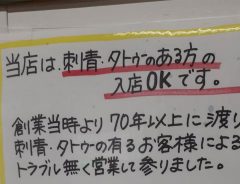
Public bathhouse in tattoo-averse Japan goes viral for its inclusive welcome sign
-
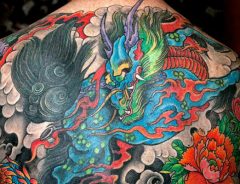
Viral Tattoo Photo Lead To Arrest Of Yakuza Boss On The Run For 14 Years
-
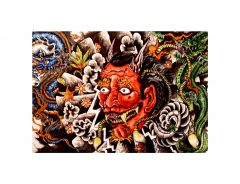
What Do Japanese People Think About Tattoos?
-
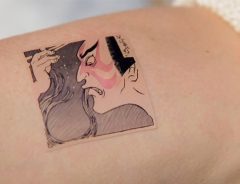
Foreign Travelers Offered Soba Allergy Tests With Awesome Temporary Tattoos
-
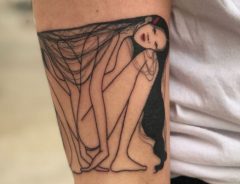
Hauntingly Beautiful Japanese Horror Tattoos By Korean Artist Suzani
-

This Artist Covers Domestic Violence Victims’ Scars With Tattoos For Free, Changing Their Lives
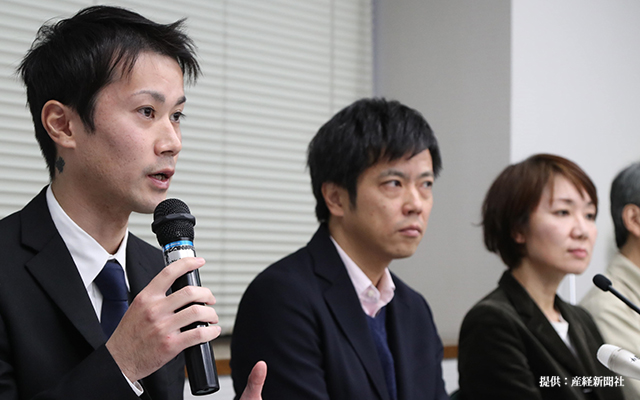


According to the Sankei News, tatto artist Taiki Masuda (30) was acquitted by the High Court of Osaka on Nov. 14 for practicing his art without a medical license. Presiding judge Masaki Nishida explained in his ruling that “The act of tattooing does not constitute a medical procedure. Therefore, it is not appropriate to prohibit the practice according to the Medical Practitioners’ Law.” The High Court ruling effectively overturned an earlier ruling made by the Lower Court charging Masuda with violating said law and asking him to pay a fine of 150,000 JPY.
Taiki Masuda (Left) speaking at a press conference following the ruling in his favor by the High Court of Osaka on November 14th, 2018.
While admitting that tattoos “potentially cause various kinds of damage as the result of injecting ink into the skin,” Nishida asserted that “a certain level of safety can be maintained even if the procedure is not administered by a doctor.”
Finally, in consideration of the recent popularity of tattoos as a fashion statement among young people, he added: “At its essence, tattooing requires technical procedural skill and aesthetic sensibility, and this is fundamentally different from medical practice.”
Setting an important precedent, the ruling is welcome news to the nearly 3,000 tattoo artists working in Japan who, ever since tattooing became legally classified as a medical procedure in 2001, had been technically operating outside the law if they weren't also fully trained doctors.
Perhaps it is only a matter of time now before the law officially changes and tattoo artists no longer need to practice their art in constant fear of police raids and crackdowns like the ones that were carried out in Osaka in 2015.
If you'd like to contribute to Taiki Masuda's advocacy group, Save Tattooing, or simply learn more information, you can visit their website here.